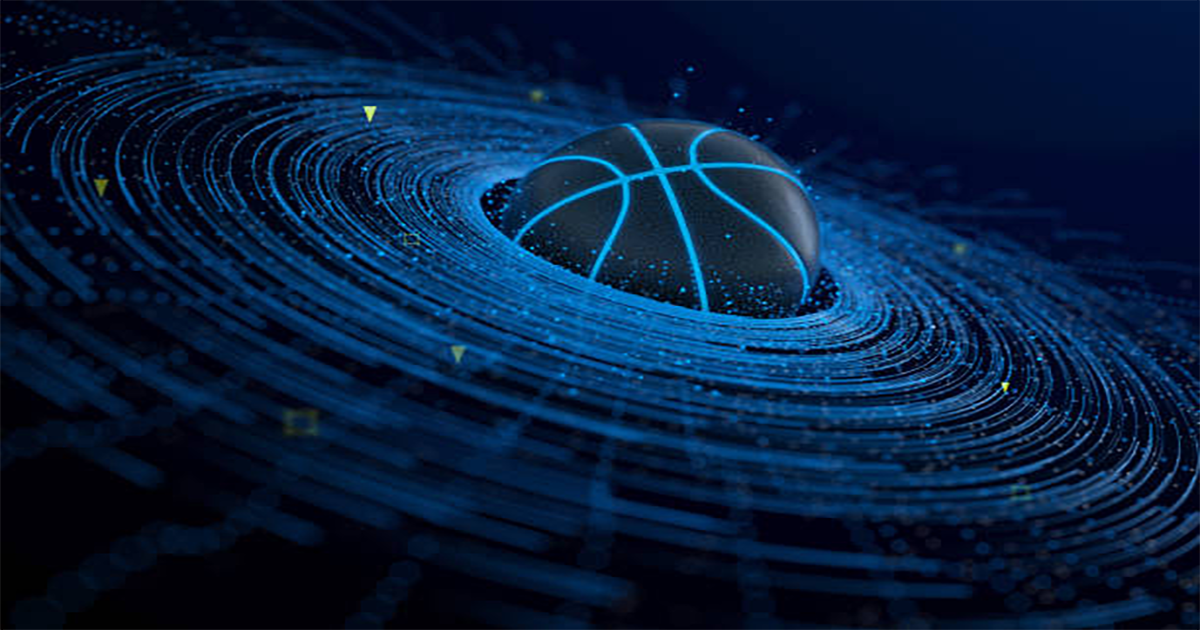Maximizing Athletic Potential: The Impact of AI in Sports Analytics
In today's highly competitive sporting landscape, athletes and teams are constantly seeking ways to gain a competitive edge. Enter artificial intelligence (AI), a game-changing technology that is revolutionizing the world of sports analytics. From performance tracking to injury prevention and game strategy optimization, AI is transforming the way athletes train, compete, and strategize. In this blog, we'll explore the various applications of AI in sports analytics, highlighting its potential to enhance athletic performance, mitigate injuries, and drive strategic decision-making.
Unlocking Insights with Natural Language Generation (NLG) in Sports Analytics:
Natural Language Generation (NLG) is revolutionizing the field of sports analytics by transforming raw data into actionable insights in a human-like manner. NLG algorithms process vast amounts of complex data, including player statistics, game footage, and historical trends, to generate coherent and easily understandable narratives. This enables coaches, analysts, and fans to gain deeper insights into player performance, game strategies, and tactical decisions. NLG-powered reports and summaries provide concise summaries of key trends and patterns, helping stakeholders make informed decisions and enhance their understanding of the game. By leveraging NLG technology, sports organizations can streamline their analytics processes, improve communication, and ultimately gain a competitive edge on and off the field.
Empowering Sports Innovation through App Development Expertise:
In the realm of sports analytics, hire app developer is paramount for driving innovation and leveraging technology to optimize performance tracking, injury prevention, and game strategy optimization. App developers possess the technical prowess to design and develop intuitive mobile applications tailored to meet the unique needs of athletes, coaches, and sports organizations. These developers can create sophisticated apps equipped with features such as real-time data analysis, player tracking, and customizable dashboards, enabling users to access actionable insights on-the-go. By collaborating with app developers, sports organizations can unlock new possibilities for data-driven decision-making, streamline their analytics workflows, and gain a competitive advantage in the highly dynamic landscape of sports analytics.
Maximizing Sports Performance with Data Annotation Specialists:
Data annotation specialist play a crucial role in advancing sports analytics by meticulously labeling and annotating vast datasets related to performance tracking, injury prevention, and game strategy optimization. These specialists possess the expertise to accurately annotate various types of sports data, including video footage, sensor data, and statistical records, providing the necessary context for AI algorithms to extract meaningful insights. By meticulously annotating data points such as player movements, game events, and physiological measurements, data annotation specialists enable sports organizations to train AI models for tasks such as player performance analysis, injury risk assessment, and opponent scouting. Through their meticulous work, data annotation specialists contribute to the enhancement of sports analytics capabilities, ultimately empowering athletes, coaches, and teams to achieve peak performance on the field.

Performance Tracking:
One of the most significant contributions of AI in sports analytics is its ability to track and analyze athlete performance with unprecedented precision. Through the use of wearable sensors and advanced motion tracking technologies, AI systems can capture and analyze a vast array of biomechanical data in real-time. This data provides coaches and trainers with invaluable insights into athletes' movements, technique, and physical exertion levels, allowing them to tailor training programs and optimize performance. Additionally, AI-powered performance tracking systems can identify patterns and trends in athletes' performance over time, enabling coaches to make data-driven decisions to enhance individual and team performance.
Injury Prevention:
Injuries are an unfortunate reality in sports, often sidelining athletes and impacting team performance. However, AI is playing a crucial role in mitigating the risk of injuries through proactive monitoring and predictive analytics. By analyzing biomechanical data, physiological metrics, and injury histories, AI algorithms can identify potential risk factors for injury and alert coaches and medical staff to take preventive measures. Moreover, AI-powered injury prevention systems can provide personalized training recommendations and recovery protocols tailored to each athlete's unique needs, reducing the likelihood of injuries and enabling athletes to stay healthy and perform at their best.
Game Strategy Optimization:
In the highly strategic world of sports, every decision counts, from player substitutions to tactical adjustments. AI is empowering coaches and analysts with advanced analytics tools that optimize game strategies and tactics. By processing vast amounts of historical data, including player performance metrics, opponent tendencies, and game scenarios, AI algorithms can generate actionable insights and recommendations in real-time. Whether it's identifying optimal lineups, predicting opponent behavior, or devising in-game adjustments, AI-driven analytics provide coaches with a competitive advantage by helping them make informed decisions that maximize their team's chances of success.
Challenges and Considerations:
While the potential benefits of AI in sports analytics are undeniable, there are challenges and considerations that must be addressed. Privacy concerns related to the collection and use of athlete data must be carefully managed to ensure compliance with regulations and protect athletes' rights. Additionally, there is a need for ongoing research and development to refine AI algorithms and ensure their accuracy and reliability in diverse sporting contexts. Furthermore, it's essential to recognize that AI is a tool to augment human expertise, rather than replace it entirely. Human coaches and analysts play a crucial role in interpreting AI-generated insights and translating them into actionable strategies that resonate with athletes and teams.
Conclusion:
In conclusion, AI is revolutionizing sports analytics by providing coaches, athletes, and teams with unprecedented insights and capabilities. From performance tracking to injury prevention and game strategy optimization, AI-powered analytics are reshaping the way sports are played, coached, and experienced. By harnessing the power of AI, athletes can maximize their potential, teams can gain a competitive edge, and fans can enjoy a more engaging and immersive sporting experience. As AI continues to evolve, its impact on sports analytics is only expected to grow, unlocking new opportunities for innovation and excellence in the world of sports.
